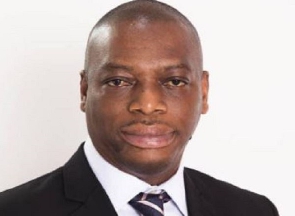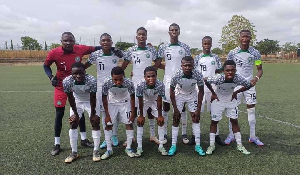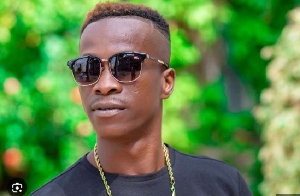Opinions of Wednesday, 16 September 2015
Columnist: Okoampa-Ahoofe, Kwame
Low English level in Ghanaian Schools not new
I don’t know why educators belonging to the National Association of Graduate Teachers (NAGRAT) believe that they have any moral authority to condemn senior high school students for poor written-language skills. The problem may, indeed, have something to do with our children’s watching too many hours of movies and non-educational television programs. But I still think the bulk of the blame should be placed at the doorstep of both parents and teachers. And as I often tell my students, most teachers that I have known and befriended are also parents and/or guardians. In effect, what I am saying here is that the caliber of students that any society or nation produces directly correlates with the caliber of parenting experienced by our school-age children (See “English Language Deteriorating in SHS – NAGRAT” MyJoyOnline.com / Ghanaweb.com 8/24/15).
As one who grew up and experienced all types of educational settings and systems in Ghana, I have quite a good understanding of the situation. For instance, my first three years of schooling were spent in rural Ghana in the late 1960s at Akyem-Kwabeng and Kankang-Jejeti (presently known as Sekyere). I had started my nursery or pre-k years at Asante-Mampong, where I had also been born. Then I had to do two years at the University of Ghana’s Staff-Village Primary School, a local authority-sponsored mini-academy; and then another two years at Akyem-Asiakwa Presbyterian Primary School, after which I attended Akuapem-Akropong Presbyterian Middle Boys’ Boarding School, better known as Akropong SALEM. I would also do five years at Okwawu-Nkwatia’s St. Peter’s Secondary School (PERSCO), and a partially aborted two years of “A-Level” at Prempeh College, Kumasi.
The first problem, even as the renowned Singaporean literary critic and scholar Edwin Thumboo once observed about the generally poor quality of postcolonial Ghanaian poetry written in the English language, is that our attitude towards language, in general, leaves much to be desired. Indeed, anybody who has bothered listening to news presentations in Akan on any one of the legion privately-owned radio stations dotted all across the country, and I understand there are at least 400 of them, readily comes away aptly thinking, albeit despondently, that professionalism appears to be the last objective on the minds of these newscasters. The overwhelming percentage of news presentations lack decorum and the proper register. It is very common, for example, to hear news readers bantering about serious criminal incidents like the alleged raping of some Ghanaian nurses by mental patients at the Accra Mental Hospital not quite a while ago.
Generally speaking, most of our graduate teachers are rote learners who just read for their exams and received their college and university degrees, without any practical experiences in their disciplinary areas of endeavor. And for the most part, they never really learned to write creatively, having also done very little by way of research publications and conference presentations; and so they woefully lack creative teaching skills. Indeed, while I was in secondary school, most of the African-authored textbooks that we used were written by Nigerians. Once awhile, one came across a textbook that was coauthored by a Ghanaian and a Nigerian; but these were largely edited works with marginal and/or barely pedagogically passable annotations. One such textbook that readily comes to mind, as a literature student, was the Selection of African Poetry co-edited by Theo Vincent, of the University of Lagos, I believe, and the University of Ghana’s Prof. Kojo Senanu.
Sometimes you also had a prolific and versatile European historian or scholar who wanted to tap into the lucrative African textbook market by “collaborating” with their African-born counterparts; often these Africans were used as authorial fronts to win the confidence of both African history teachers and their students. I am aware of this because I have taught African history at the university level, both to graduates and undergraduates, and held forth with other historians and scholars who knew the inside story, having themselves produced respectable scholarship in the study area or sub-discipline of African History and African Studies. I was also a student at a time when much of the decadence we are presently experiencing was beginning to take gradual but firm roots.
Academic pomposity and all, most Ghanaian graduate teachers are not any remarkably productive scholars or teachers, for that matter. Whatever scholarship they produce does not pass muster beyond local consumption, for the most part. The written English-language skills of the average Ghanaian graduate teacher, especially those outside the liberal arts, leave much to be desired. The problem has largely to do with the fact of English competing with too many local languages. While I was growing up, these local languages were called “Vernaculars,” and nobody really paid serious attention to them, other than the brief period of the Acheampong-led juntas of the National Redemption Council (NRC) and the Supreme Military Council (SMC-I), when Ghanaian high school students were being strongly encouraged to learn French – for ECOWAS cementation and/or solidarity – and some of the other local languages that were not native to any particular student. Thus you had Akan students who were not familiar with the Ga-language, for example, choosing the latter as their language elective.
Indeed, so blisteringly afflicted with inferiority complex, a vestigial carryover from the slavo-colonial era, were most students that those of their classmates who opted to study non-European languages invariably became the butts of the jokes of those who opted to study Western-European languages like French, German and Spanish. The low quality of Ghanaian theater and the fledgling movie industry has also meant that our youths would be bombarded with the relatively better-quality movies produced by the Nigerians, or the so-called Nollywood movies. You see, every work of art embodies the language and culture of the environment in which it was produced. This largely explains why the Nigerian variety of the English language appears to have conquered its Ghanaian counterpart.
This is not necessarily a bad thing, but it is apt to eventually erase some of the unique and vital and culturally defining aspects of the conquered culture. This may be the sort of “movie problem” that NAGRAT President Christian Addae-Poku recently characterized as the “deteriorating” situation of Ghanaian English.
By Kwame Okoampa-Ahoofe, Jr., Ph.D.
Garden City, New York
August 24, 2015
E-mail: okoampaahoofe@optimum.net













